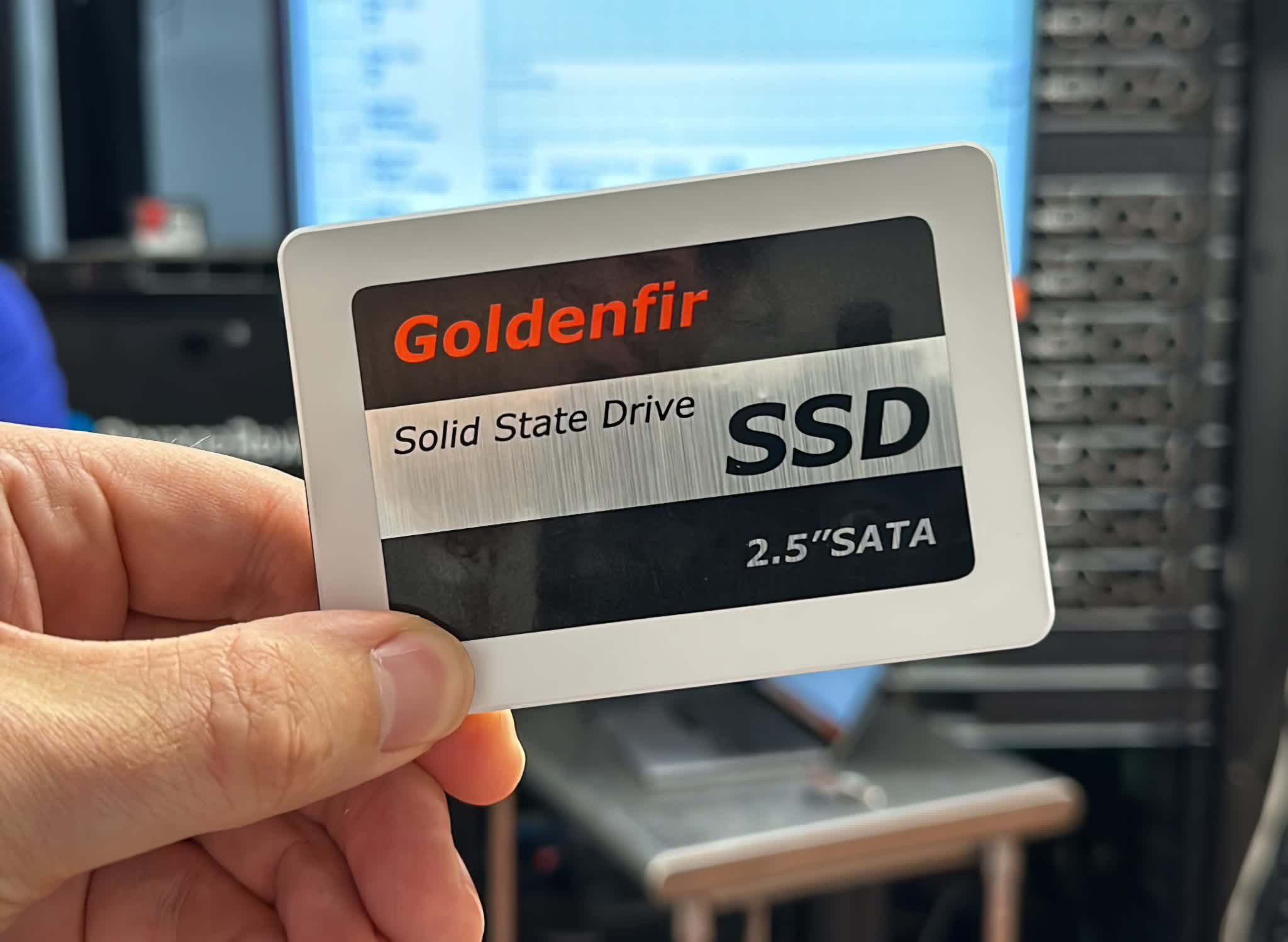Caveat emptor: There is a fine line between a deal too good to pass up and one too good to be true. I don't think I need to tell any of our readers that a $3 SSD of practically any size falls into the latter category, but it's always important to expose these scammy products for what they are.
Hardware reviewer StorageReview recently received a 2.5-inch 120GB SATA SSD from one of its Discord members. It came with some sketchy characteristics that immediately raised red flags. First, it was from an unknown brand called Goldenfir. Second, it is listed as $14.27 but marked down 79 percent to $2.99, a somewhat obvious indication that the MSRP was derived from the pre-determined "sale" price rather than the other way around.
StorageReview expected the drive to be a complete "turd" right out of the box. Surprisingly, the unit did have a cheap "vintage-six-years-ago" Yeestor YS9083XT SATA 3.2 controller and did contain 128GB of NAND. However, that didn't guarantee a high level of performance, especially since it lacked a DRAM cache.
Initial single-pass testing seemed reasonable. A CrystalDiskMark benchmark comparison between the Goldenfir and a 960GB enterprise-class SSD from Kingston showed the dirt-cheap alternative turning in unexpectedly close numbers. However, when StorageReview used more rigorous testing, the sketchy drive showed its true nature.
Moving to a 64GB full-write test, reviewers found the first signs that the Goldenfir drive wasn't worth the cheap plastic case it was housed in.
"The Kingston drive finished the entire test before this piece of turd [the Goldenfir] could even build its test," StorageReview said.
In the VDBench 4K random read test, which fills up the entire drive, the Kingston SSD reached about 80,000 IOPS. The Goldenfir "hit a wall" at 15,500. Final score: Kingston 78,000 IOPS and 1,630 ms latency. Goldenfir 13,000 IOPS and a sluggish 10,255 ms. Random writes were even worse.
Switching back to the CDM tool to check tasks like trimming commands and garbage collection on a full drive, the Goldenfir was barely measurable, running at only 5.2MBps.
All said and done, StorageReview said you'd be better off with a MicroSD card.
"Don't buy it. Stop it right now," said the reviewer. " There's [sic] many, many, many, many, many, many better solutions, [like a] SATA DOM [disk on module] USB stick or MicroSD card."
So where can you ignore StorageReview's (and our) advice and purchase one of these little beauties?
The Discord user bought the SDD from AliExpress, known for its cheap products but also for occasionally selling scam goods like those fake 4TB Samsung 980 EVOs back in July. He also bought a Goldenfir 128GB NVMe drive for $8, which yielded similar results.
To be fair, AliExpress isn't the only retailer to fall for selling scammy products. A year ago, generic 30TB SSDs on Walmart's online marketplace were simply two 512MB SD cards modified to show as 15TB each that were hot glued into a plain SSD chassis.
Image credit: StorageReview
